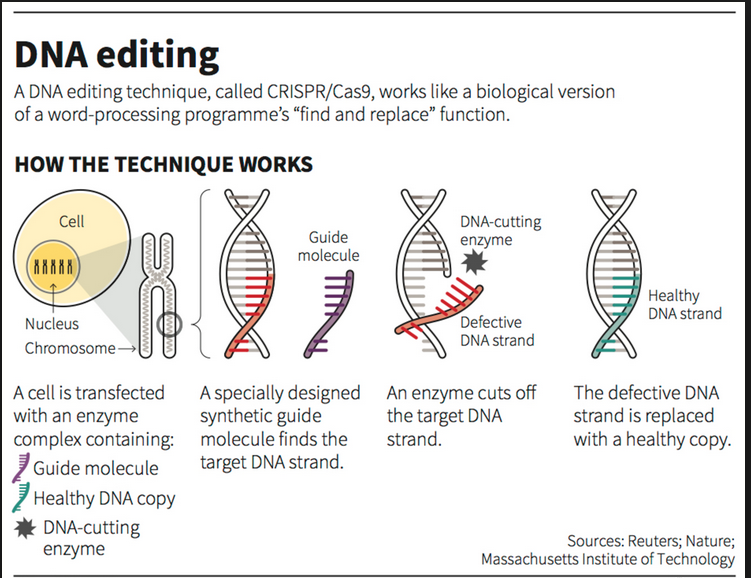DRR Dhan 100 (Kamala) &Pusa DST Rice 1

- 06 May 2025
In News:
- Recently, the Union Ministry of Agriculture and Farmers’ Welfare launched India’s first genome-edited rice varieties—DRR Dhan 100 (Kamala) and Pusa DST Rice 1.
- Developed by ICAR-IIRR (Hyderabad) and ICAR-IARI (New Delhi) using CRISPR-Cas9 technology under SDN1/SDN2 methods.
About the Varieties
DRR Dhan 100 (Kamala)
- Developed by: ICAR-Indian Institute of Rice Research (IIRR), Hyderabad
- Parent variety: Samba Mahsuri (BPT 5204)
- Features:
- 19% increase in yield
- Matures in ~130 days (20 days earlier than parent)
- Stronger stem – reduces lodging
- Saves ~7,500 million cubic meters of irrigation water
- Lower methane emissions
- Edited gene: CKX2 (Gn1a) – increases grain number per panicle
Pusa DST Rice 1
- Developed by: ICAR-Indian Agricultural Research Institute (IARI), New Delhi
- Parent variety: MTU 1010 (Cotton Dora Sannalu)
- Features:
- Improved tolerance to drought and salinity
- Yield increase: Up to 30.4% in saline/alkaline soils
- Edited gene: DST gene
- Developed using SDN1 genome editing – no foreign DNA inserted
Technology Used
- CRISPR-Cas9 genome editing system:
- Enables precise editing of native genes without inserting foreign DNA
- SDN1/SDN2 methods approved by India’s biosafety regulations
- Genome editing vs GMOs:
- Genome editing makes internal gene alterations
- GMOs involve insertion of foreign genetic material
- GM crops are banned for cultivation/import in India (except Bt cotton)
Benefits Claimed
- Increased agricultural productivity:
- 19% increase in yield (DRR Dhan 100)
- Up to 30.4% increase in saline soils (Pusa DST Rice 1)
- Environmental benefits:
- Reduced greenhouse gas emissions (~20%)
- Lower methane release due to early maturation
- Major water conservation
- Target states: Andhra Pradesh, Telangana, Tamil Nadu, Kerala, Karnataka, Chhattisgarh, Maharashtra, Madhya Pradesh, Odisha, Jharkhand, Bihar, Uttar Pradesh, West Bengal, and Puducherry
Concerns and Criticisms
Biosafety and Unintended Effects
- Unintended mutations: CRISPR-Cas enzymes may cause off-target gene edits, potentially resulting in unknown protein formations.
- Lack of global standardisation on enzyme concentration and specificity.
- Some scientists warn of genetic instability in SDN1-based edits.
Seed Sovereignty & Intellectual Property Rights (IPR)
- Genome editing tools are IPR-protected, raising concerns over farmers' seed sovereignty.
- Activist groups like Coalition for a GM-Free India demand transparency on IPR ownership and oppose reliance on proprietary technologies.
- Risk of monoculture, loss of rice genetic diversity, and trade barriers for India’s non-GM rice exports.
Policy and Regulatory Framework
- India’s biosafety guidelines (2022) permit SDN1 and SDN2 genome editing for general crops.
- The Union Budget 2023–24 allocated ?500 crore for advancing genome editing in agriculture.
- ICAR expanding genome editing to oilseeds and pulses.
